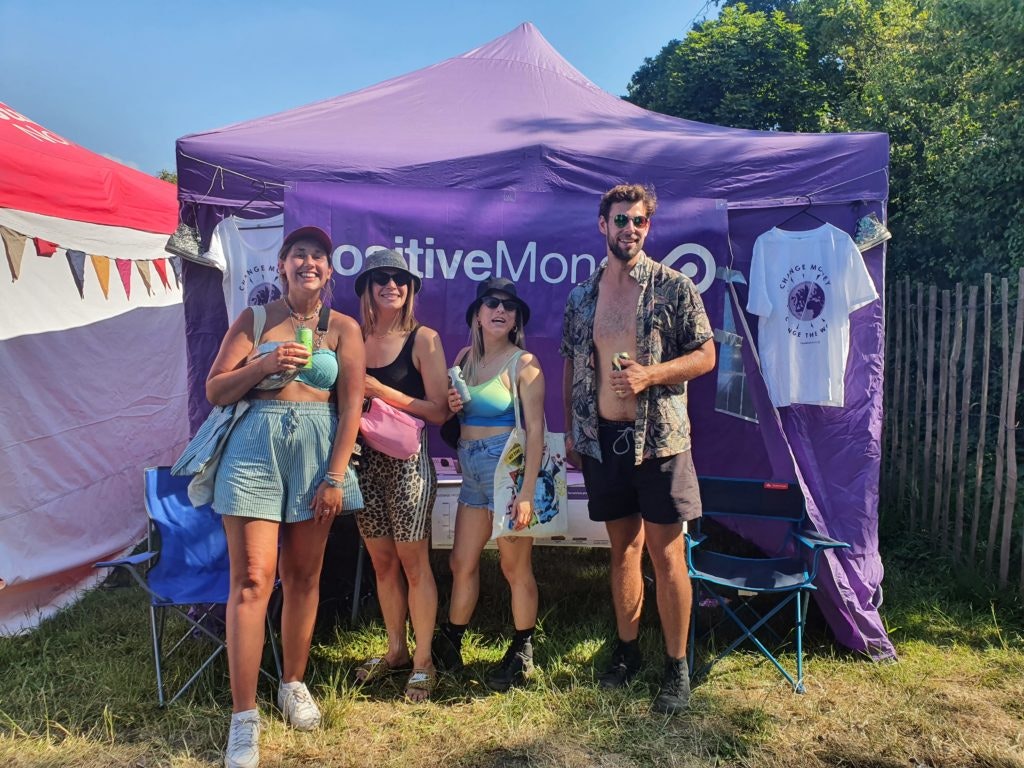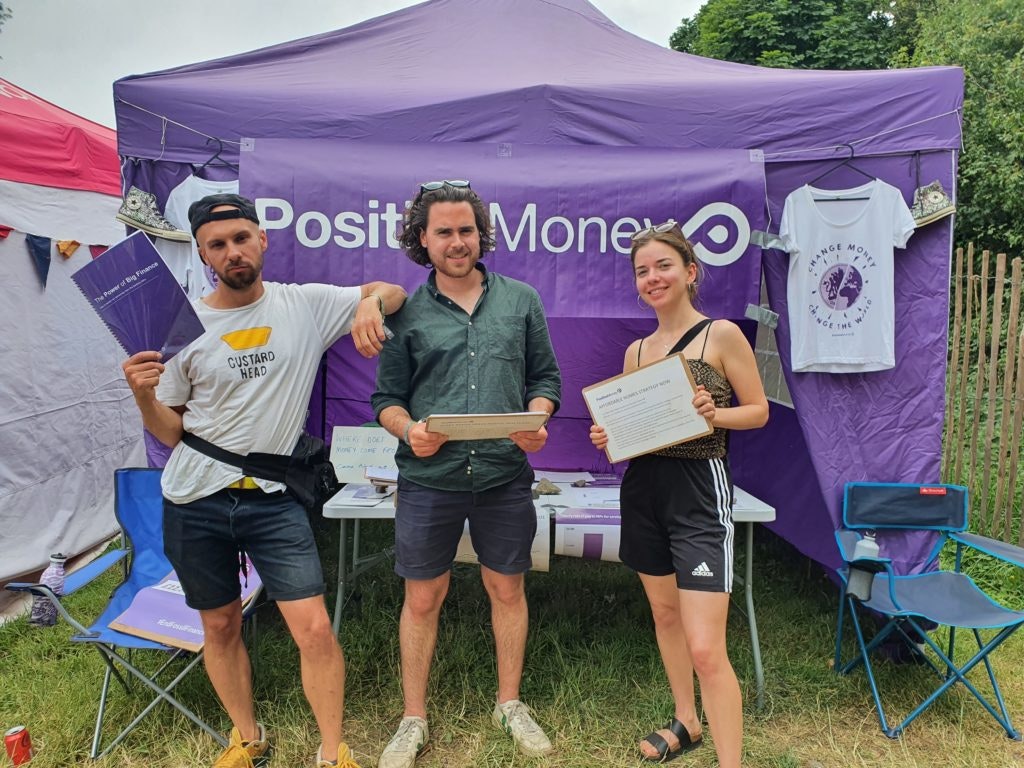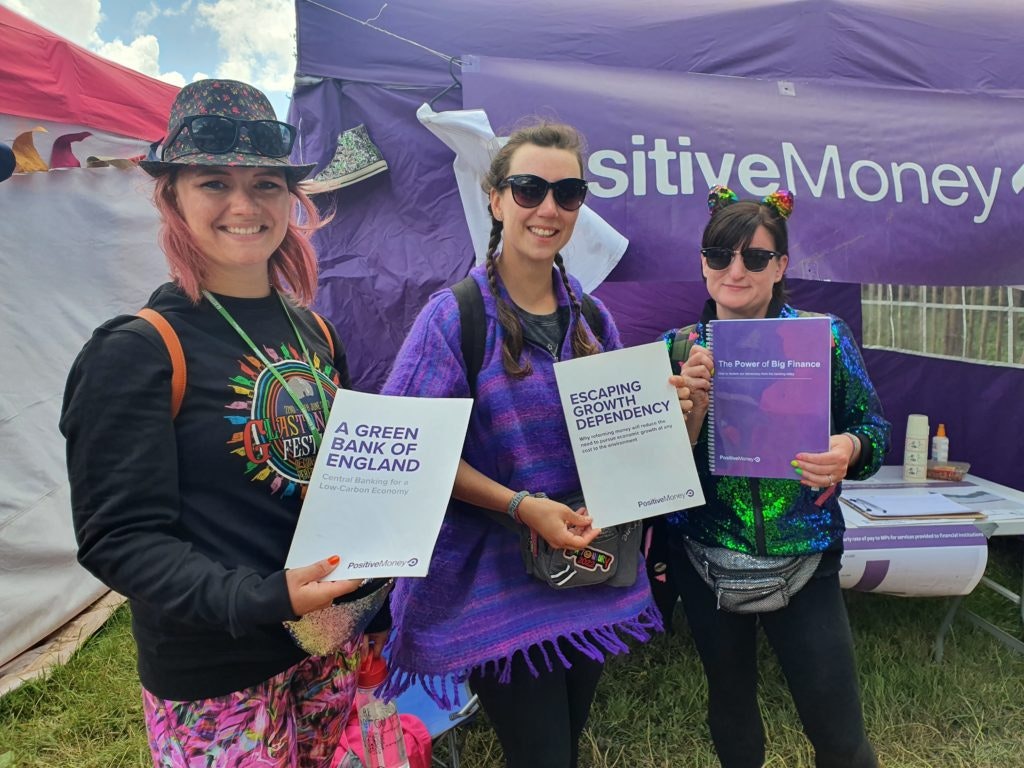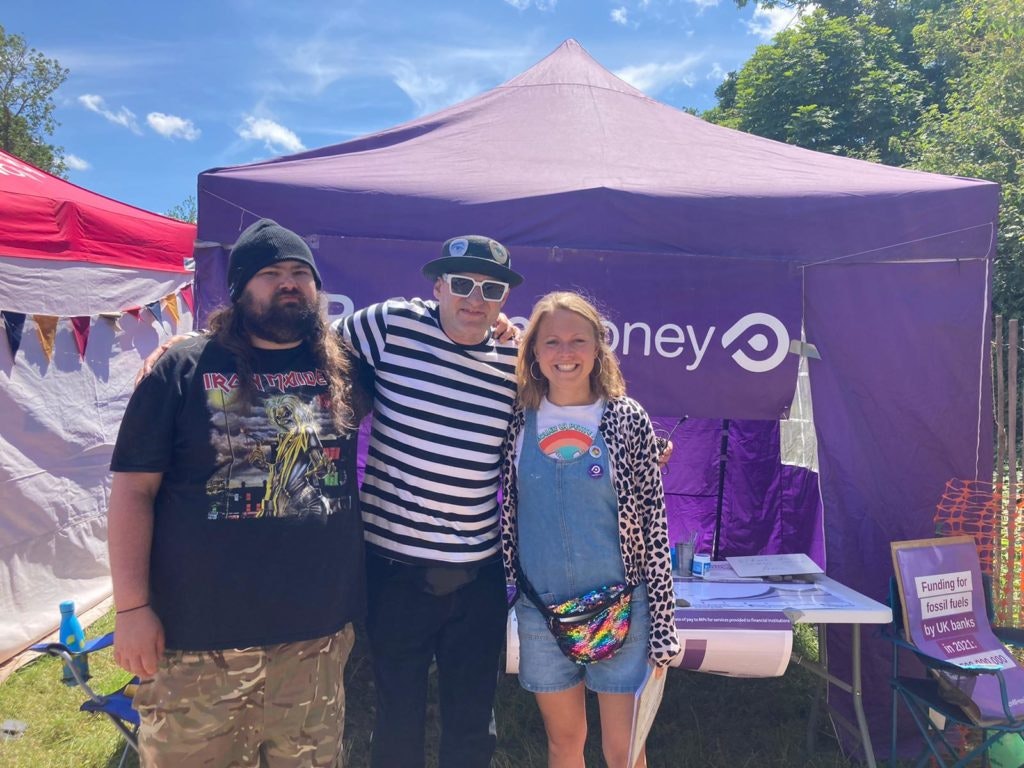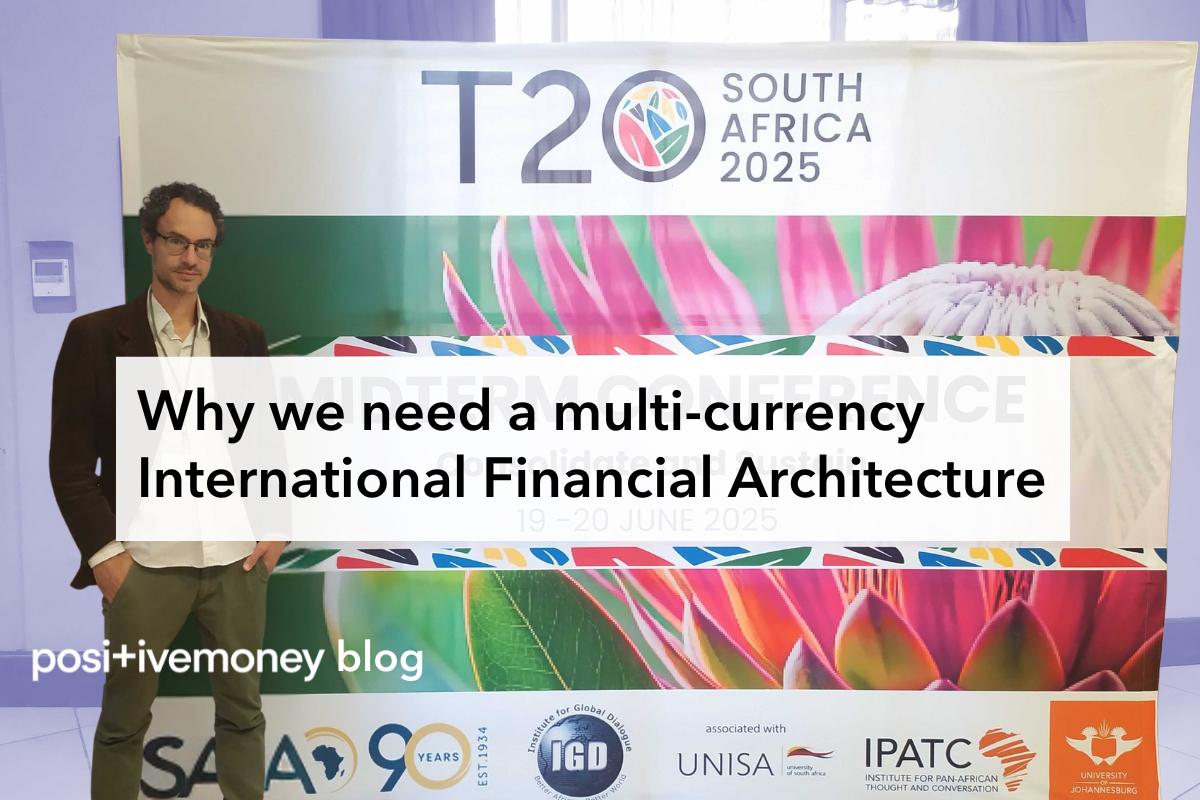
EUUK
3 July 2025
July 14, 2022
Positive Money returned to Glastonbury this year to raise awareness about the root causes of the housing affordability crisis and to petition for government action to make homes affordable for everyone.
After a three-year hiatus due to the pandemic, Glastonbury Festival returned this summer, and we were delighted to be back with a stall among the public. For five days, we discussed ways to transform our economy into one that protects our planet and serves the whole of society equally.
In the spirit of our core values (open-mindedness and innovation), we decided to trial three petitions covering some of our main campaigns: housing affordability, ending finance for fossil fuels, and getting the banking lobby out of politics. After just one day on the ground, it quickly became obvious that one of these issues stirred universal concern: the housing affordability crisis.
We discussed our recent report on housing and, namely, its key finding: the lack of affordable housing isn’t primarily driven by a shortage of housing itself, but by decades of government policies that have turned houses into financial assets rather than homes. Policies like Margaret Thatcher’s ‘Right to Buy’ scheme, which has transferred almost 2,000,000 social homes to private hands, diminished the overall stock of social housing. Shelter reported earlier this year that less than 5% of the social housing sold-off under this scheme has been replaced.
In fact, 40% of the property sold under ‘Right to Buy’ has fallen into the hands of private landlords. This policy didn’t just create ordinary homeowners, it created a whole new class of landlords who were charging over double the rent levels local authorities were previously charging. Due to the vast reduction in social housing stock, down from 5.1 million dwellings in 1980 to 1.7 million in 2014, many people have no choice but to rent privately: giving landlords enormous power over rent prices.
So, when Boris Johnson announced plans to extend this scheme beyond council housing to housing associations (not-for-profit organisations providing low-cost housing to 2.5 million people in the UK) we knew action had to be taken. Especially given that the limited social housing available is sub-standard and in desperate need of funding, as campaigners like Kwajo Tweneboa have been saying for years now, and ‘Right to Buy’ will only divert resources away from this.
Preventing the sell-off of some of Britain’s last remaining affordable housing was top of the demands on our petition, but this alone won’t solve the problem. That’s why we’re also calling for rent controls – another policy abolished by Thatcher under the 1988 Housing Act. These would empower local councils to set limits on what landlords can charge tenants.
Across all the conversations we had, there seemed to be two words on almost everyone’s lips: second homes. Many were struck by the stark inequality of some people owning several homes when so many own none. It was a particularly sensitive subject for locals, as house prices in Glastonbury have risen 44% over the past year. But Glastonbury is just one of many hotspots for holiday homes and Airbnbs. Not only do these eat into the local housing stock and push prices up by increasing demand in the area, pushing locals out of the areas they’ve grown up in, they also create a vacuum in the local economy when the holiday season is over.
The injustice of second homes extends beyond just those unable to attain homeownership, to those trying to keep a roof over their heads altogether. Crisis and Heriot-Watt University predict that over 66,000 more people will be homeless by 2024 due to the cost of living scandal. Shelter also found that homelessness due to no-fault evictions is up 37% on pre-pandemic levels. A lack of social housing to absorb evictees who can’t pay extortionate rent is a huge factor in these wild surges in homelessness.
Our discussions with festival-goers also overwhelmingly confirmed the findings of some polling we did to accompany our report launch earlier this year: that the majority of homeowners would be happy for their home not to increase in value if it meant more first-time buyers could afford a home.
Leaving Glastonbury, we came away full of hope. This issue transcends political allegiances or income levels. We spoke to millionaires, private renters, social housing residents and ordinary homeowners, many of whom had bought property under the ‘Right to Buy’ scheme. The feeling amongst them was mutual: housing is a human right, but right now, it’s acting as a vehicle for inequality in the UK to widen. House prices must come down across the country, and the government must start to use the tools it has to make this happen.
Positive Money’s report ‘Banking on Property: What is driving the housing affordability crisis and how to solve it’ can be read in full, or just the summary, here. To join the call for change, sign the petition here.

